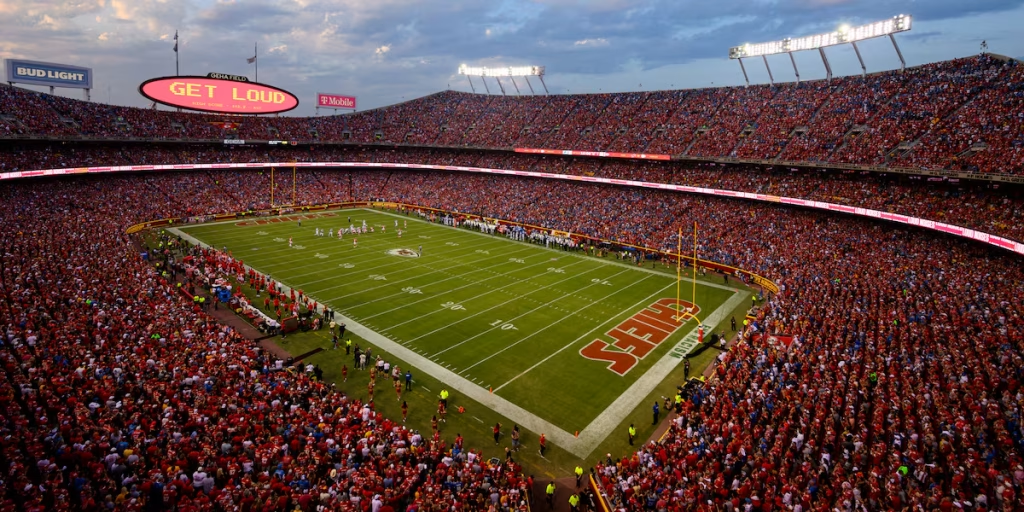Picture yourself inside a sold out stadium, feeling the blood rushing into your veins as the lights turn off and the audience shouts, but to your dismay, vending machines that accept cash or cards, and waiting endless lines are still a reality. In this instance, you don’t need to stand in line. Just text a vendor, and Bitcoin and a steaming hot dog will be sent to you through the Lightning Network. That’s right, no queues, no unnecessary costs, and no hassles. Congratulations to you for being in the world of crypto-only consignments, enabling the purchase of snacks or keepsakes with bitcones, all thanks to the efficiency and бесполезные offers of stadiums.
How Micropayments Can Now Be Done Instantly

The Lightning Network is fundamentally built for instant transactions with minimal fees. Payments made on-chain, such as those using Bitcoin, can take up to ten minutes to process and come with a hefty fee. However, payments using Lightning are settled in milliseconds and come with a near-zero fee. For stadium concessions, which have high average ticket prices but low individual transaction values like a hot dog or a soda, Lightning enables truly seamless purchases. Fans no longer worry about tedious processes like waiting for a card terminal or needing to obtain exact change to pay for items. Now, all they need to do is scan a QR code at the stand, check the amount in their wallet app, confirm, and the vendor’s system registers the payment in real time on the Lightning channel.
This adjustment attempts to fix one of the oldest issues in live events: the regretful concession stand line. Lets take traditional payment as a method for comparison; such payments can create logjams when dozens of people wait to complete a single transaction, no matter how small. Whereas, with the Lightning transactions, payments are cleared almost instantly which allows one cashier to handle dozens of orders every second without ever having to touch cash and cards. As a result, stadium operators can redesign concession stand areas for increased revenue as reduced wait times allow better customer flow. Additionally, since only an off-chain channel is needed for the fan’s wallet and the stadium’s node in Lightning transactions, the system remains efficient when accommodating tens of thousands of fans storming a game or concert.
Executing Lightning at the Concession Stand
Setting up a crypto-exclusive concession system requires more than simply adding a QR code to a hot-dog cart. Each stadium requires a sophisticated system of Lightning nodes that are connected by reliable sources of internet and power. These nodes are responsible for routing incoming payments via the Lightning mesh. There is also a need for a central node that periodically settles on the Bitcoin blockchain, which gathers funds. Concession vendors integrate simple point-of-sale software that generates Lightning invoices on demand, displays them on small screens or printouts, and immediately verifies payment prior to printing the customer’s receipt and order ticket.
It is of equal importance to train employees on how to handle Lightning channels and how to troubleshoot payment failures. While the majority of transactions go through seamlessly, there are certain times when the network suffers a hiccup which causes a payment to stall. Well established venues have procedures in place for rebalancing the channels on the go, or using optional QR codes that bypass channels with high traffic. Automated tools for managing channels along with some human supervision enables stadiums to maintain almost total availability, even during peak periods.
To onboard fans, organizations encourage attendees to download wallet apps that have Lightning functionality and preload funds at designated kiosos or online beforehand. Some stadiums give new users small amounts Bitcoin or stable coins as pre loaded ‘welcome packs’ to ease the deterrent towards using Lightning. Its expected that as time passes, more fans will be able to use crypto payment systems with the lure of exclusive discounts and the ability to pay for a hot dog with the simple gesture of tapping a button.
Advantages for Supporters and Stadium Managers
For supporters, crypto-only concessions enable fully automated and secured payment methods, saving Contactsless paying fans money and allowing better supervision of their finances. Unlike credit cards, lightning wallets offer payment history, budgeting safeguards, and privacy. These checkers guarantee stronger data protection than cards. Sharing personally identifiable information with concession vendors is not possible, nor there is any risk of skimmer card terminals on portable terminals. Every payment is cryptographically protected and limits sensitive information disclosure.
Stadium operators have lower costs in additional areas. Avoiding the expenses of maintaining credit-card machines, merchant accounts, hardware requirements, payment-processing fees, and chargeback disputes saves overhead. Not having to pay fees charged by credit cards makes it possible to offer small incentive perks, such as a $0.10 topping upgrade or $0.25 refill discounts, which would, under card fees, be unfeasible. Over time, the data collected from Lightning channels can help operators enhance concession offers, improve optimal staffing levels, and implement dynamic pricing models that respond in real time to demand to more effectively manage resources.
Considerations and Challenges
Shifting to crypto-only concessions comes with its issues. Infrequent settlements for Bitcoin payments tend to spook both fans and vendors due to the volatility of Bitcoin prices. To ease this, a lot of stadiums Lightning invoice peg at the point of sale, conveniently converting incoming sats to euros or dollars in real-time. They also offer stablecoin channels that offer the speed of Lightning payments while maintaining an equivalent value to fiat currency.
Regulatory compliance presents another problem. Stadiums have to deal with anti-money laundering (AML) and know your customer (KYC) protocols on big ticket purchases, while still accommodating smaller concession transaction checks that could prompt exhausting scrutiny. Working with legal and payment regulation specialists defines reporting and policy guidelines that allow for unrestricted micro-payment identification while mandating proper ID protocols for larger transfers.
Maintaining technical resilience is crucial. High-capacity venues need to provide contingency internet links, UPS, and backup Lightning nodes to service any interruptions. Some early pilots broke down under the strain of a 60,000 fan attendance, highlighting the need for decentralized systems to integrate enterprise-level infrastructure to achieve the reliability of traditional payment methods.
The Escalating Domains of Cryptocurrency And Its Venues

As more and more people utilize the Lightning Network, it affords the possibility of creating sports and entertainment venues that are exclusively tailored for cryptocurrency users. For example, think of an esports stadium that allows fans to pay for collectible skins or in-arena AR experiences with sats. Consider a music festival that integrates drink tokens and merchandise coupons into its Lightning channel. Concessions are not the only things these facilities could implement; they could also make it possible to purchase parking spaces, resale tickets, and participate in loyalty programs, all of which can be done through an application installed on the patron’s mobile device.
In the long run, patrons might be offered tokens to be redeemed on-chain for engaging constructively with the venue duration—discounts, scavenger-hunt NFTs, and even some micro-donations to charity. They’ll be granted seamlessly integrated into the Lightning network. When wallet systems become user-friendlier, stablecoins and Bitcoin receive clarification from regulators, then the idea of a venue that is completely crypto-based shifts from merely experimental to essential. When that happens, hot dog stands will transform into the entrance of a vast digital economy, However, the blockchain confirmations will remain unchanged, while the enthused crowd cheering will.





